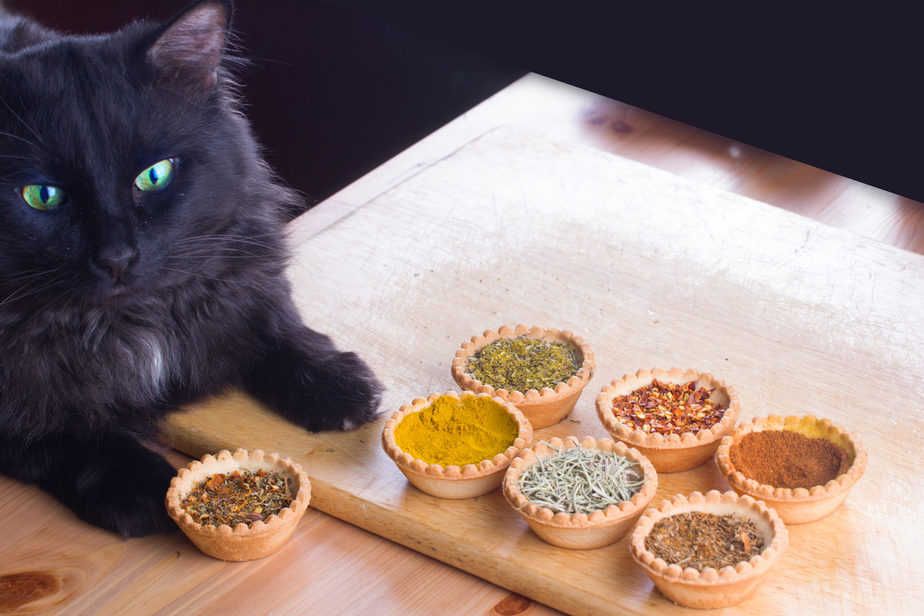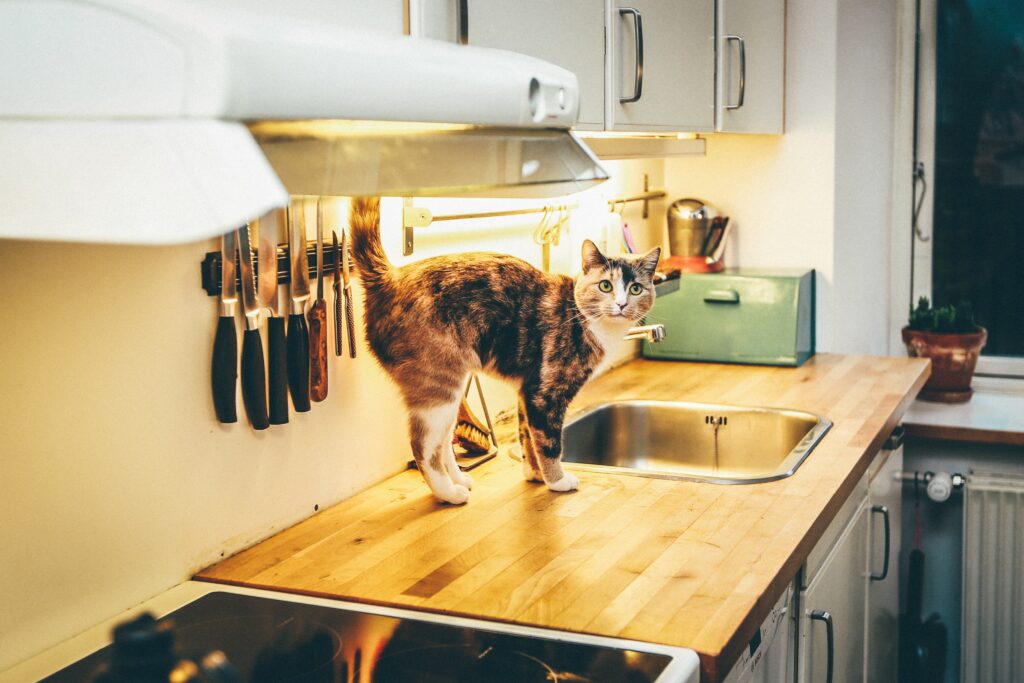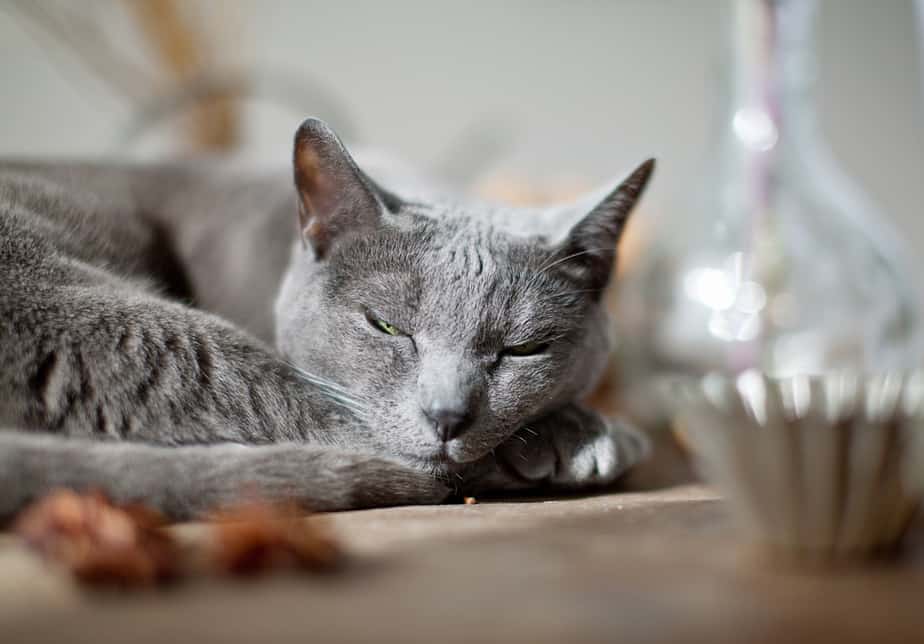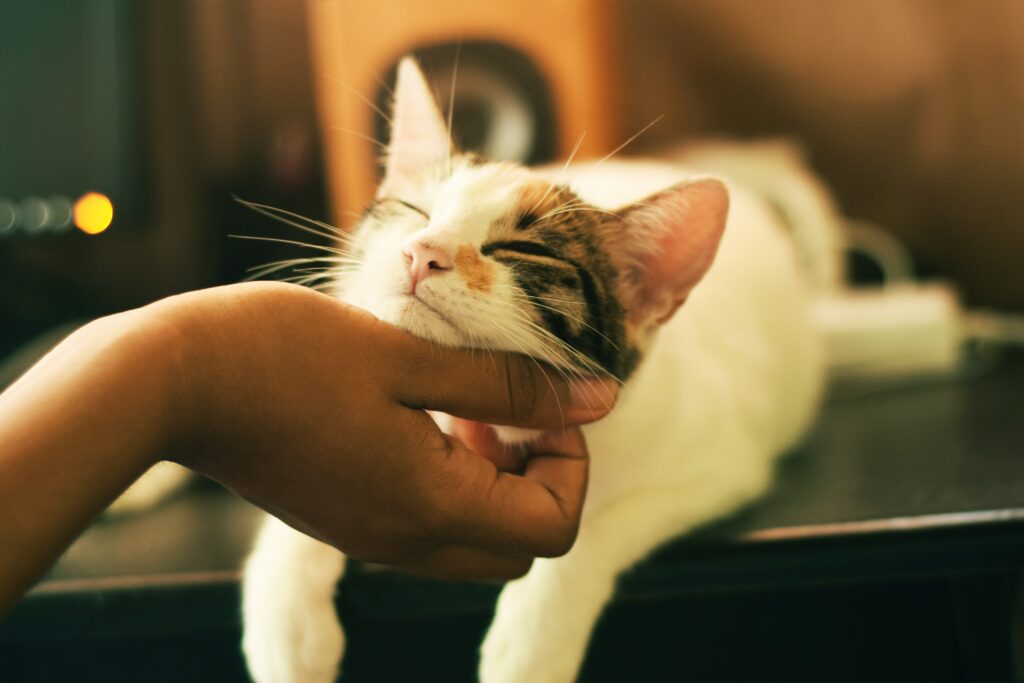📖 Table of Content:
To make things a little spicier, we love adding some black pepper. When it comes to cats, they put their noses in everything we do, but what about this spice in particular? Can cats eat black pepper and do they even like it?
And we’re not talking about bell peppers here. The strong scent of black pepper might not be their favorite smell. Cats are known to be picky, especially when it comes to these strong, spicy aromas.
Is black pepper dangerous to cats?
Black pepper isn’t proven to be poisonous to felines in small amounts, but any larger quantities are a reason for concern. Cats can eat black pepper that’s found in some foods in small amounts, although it isn’t recommended.
The good news is that our furry friends are picky-eaters and will probably dodge the opportunity to even taste black pepper. Its bitter flavor can make them sneeze, and being the intelligent creatures they are, cats probably won’t express the curiosity for this spice again.
Do cats (dis)like black pepper?
Felines have an extraordinary sense of smell. They have more than 200 million odor sensors, while humans have just about 5 million in their noses. In the wild, it’s their primary method of discovering pray, identifying other animals and objects, and it helps with orientation.
As much as it’s helpful, having an amazing sense of smell can be a disadvantage as well. A lot of scents that are appealing to humans can be repelling to felines because of their noses’ powerful detection ability. This includes black pepper, as well as some other strong scents like cinnamon and citrus fruits.
However, there is always an odd (fur)ball and although uncommon, your cat might not mind the aroma. Other cats that aren’t fond of the smell of black pepper may sneeze a lot from inhaling or sniffing it, just like humans. Their repulsion towards this smell is what made it a common cat deterrent.
Health benefits
Black pepper is more safe than salt, for example. It’s known to have many health benefits for humans and some for cats, as well. Small amounts of this spice in cat food are harmless and can be a source of antioxidants. Piperine is an alkaloid found in black pepper that has these antioxidant properties.
This spice also contains some anti-inflammatory benefits that can help reduce many different conditions, such as swelling, pain, and redness. And although cats don’t require black pepper in their diet, some of these properties can come in handy.
Substitute for salt
In contrast to black pepper, cats need a certain amount of sodium in their bodies. This is a mineral that can benefit feline’s health in balanced amounts, but also become detrimental if ingested in large quantities. Salt poisoning, although uncommon, can occur due to excess intake of this mineral.
This is where black pepper comes in handy. To avoid developing certain medical conditions, this spice can serve as a safer alternative to salt.
How much black pepper can cats eat?
“Can cats eat black pepper and how much is too much?”
It depends on your pet – if she isn’t repelled by the smell, how much she weighs, etc. However, felines don’t digest spices very well. Therefore, it’s better to play it on the safe side and minimize your cat’s spice intake.
Even though black pepper isn’t toxic to cats, continued intake is likely to cause some side effects. These disadvantages mostly occur in the form of stomach discomfort. Although rare, black pepper can also cause kidney problems, but only if the consumption is regular and overabundant.
This isn’t likely to happen, even with cats who are fond of this strong scent. Their picky nature is one worry less for owners when it comes to cats eating spices.
Black pepper as a cat repellent
Many cats are mischievous creatures and are known for their stubbornness. Especially when it comes to your plants, if your kitty is on a warpath, we know how that’s going to end up. Besides your potplants, felines can ruin people’s gardens by marking their territory or nibbling on plants.
Therefore, people have tried different methods of repelling cats from their gardens. Using black pepper or black pepper spray, people have reported a decrease in feline destructive acts.
You can sprinkle some black pepper on your plants or around the garden, and it should do the trick. The strong odor is most likely to deter them from any further misbehavior. Their curiosity will probably diminish after a sneeze or two.
As for an indoor solution, you can make pepper spray by adding water to it. Next to pepper, some spray repellents that are claimed to be efficient are citrus fruits (lemon, lime, and oranges), as well as cinnamon.
Why is pepper healthier than salt?
Black pepper is a great source of vitamins and minerals. While sodium is an important mineral in our bodies, black pepper has many more beneficial properties. This spice’s primary component, piperine, fights free radicals and aids digestion and nutrient absorption.
Magnesium, vitamin K, iron, and fiber are all abundant in pepper. Magnesium is important for felines because it aids in the treatment of constipation and urinary problems in pets. Especially because of furballs that cause digestive problems in cats.
When it comes to vitamin K found in this spice, it can help with forming blood clots and coagulation. Another mineral contained in black pepper is iron, which helps in making red blood cells. Hemoglobin, a protein found in red blood cells that transports oxygen from the lungs to all areas of the body, is made using iron.
Fiber is a type of carbohydrate, and while it isn’t required in a cat’s diet, it can provide some benefits. Felines that have constipation problems can easily get relief with a small amount of fiber. Also, if your cat needs to lose a few pounds, it’s a good addition to her diet because it makes cats feel full.
Can cats eat green and white pepper?
In contrast to black pepper, green and white pepper are milder in flavor. They don’t hold any nutritional value to felines, so they are probably unnecessary in their diet.
Just like black pepper, the smell is often deterring to cats and they will most likely try avoiding it. As for cat repellent, these two work as well as black pepper does.
Can cats eat lemon pepper?
No, cats can’t eat lemon pepper because it’s extremely toxic. The combination of the peel of lemon and black pepper is dangerous to felines. Citrus fruits, such as lemon, are poisonous to cats, and even when mixed with black pepper, they represent a health hazard.
Don’t try using this as a cat repellent because it’s possible it will harm your cat. Stick with black pepper spray or some plain cinnamon.
In conclusion
The answer to the question, “Can cats eat black pepper?” is yes, but in small amounts. It can bring some health benefits but only if given in moderation. It’s a good source of vitamins and minerals essential for your cat’s health. Also, this spice can aid your feline in digestion and can help her body absorb nutrients.
It’s healthier than salt and is recommended as its substitute. Although sodium is an important mineral in a cat’s body, it can cause harm in the long run. Excess amounts of this spice can lead to salt toxicity.
On the other hand, regular consumption of black pepper can be detrimental to your cat’s health. Some problems in terms of gastrointestinal upset may occur, with most common symptoms including vomiting, diarrhea, and abdominal pain.
Black pepper has a strong scent that is repelling to felines as they have a stronger sense of smell than humans. It’s often used as a cat deterrent to keep them from bashing your garden and house plants.




